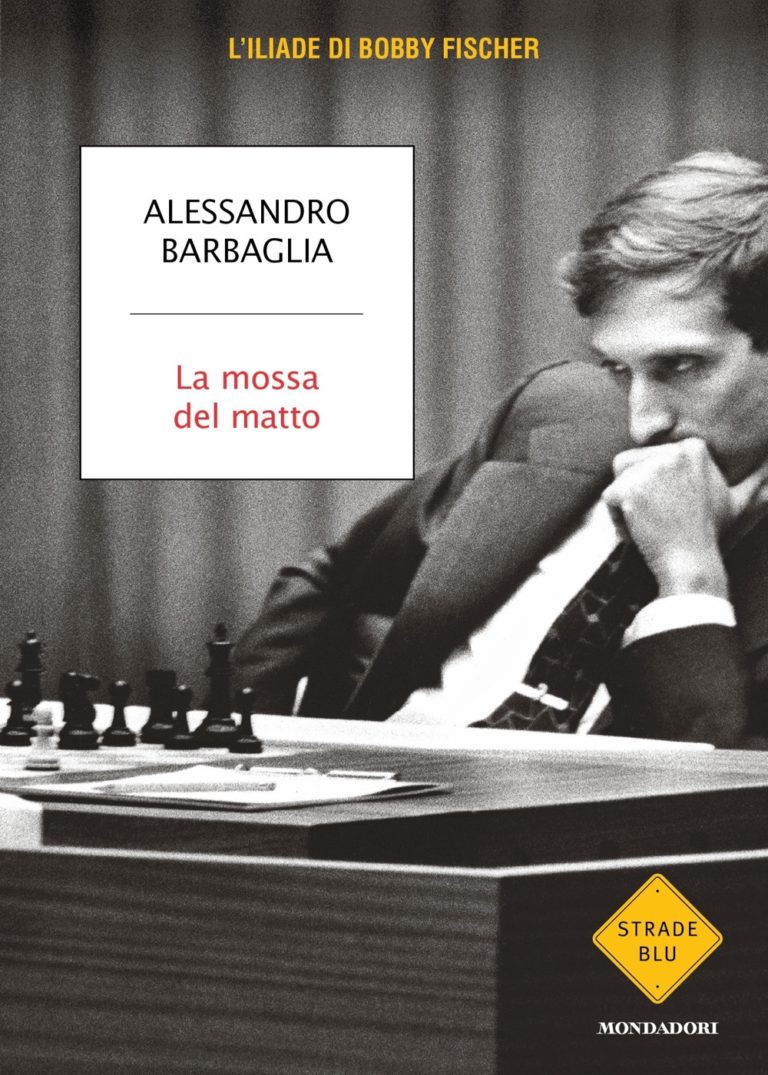Alessandro Barbaglia’s La mossa del matto (The fool’s move) tries to be three things in one: the life story of chess champion Bobby Fischer, a reconciliation dialogue between author and father, who died too soon, as well the tracing of a daring parallel between Fischer’s relationship with Russian champion Boris Spasskij and that of Achilles and Ulysses of Homeric memory. In our neck of the woods, we say that too much is crippling, and this work runs the risk.
 I appreciated the accurate and skillfully woven account of Bobby Fischer’s incredibly successful yet troubled
life. The intersection between Fischer’s biography and actual episodes of the author’s and his dad’s lives works well,
too. The attempt to bind the Fischer/Spasskij relationship to that of Achilles and Ulysses, albeit intriguing and often
fitting, seems unnecessary, always risking breaking the fragile balance between the three narratives. Somehow Barbaglia
manages to keep it all together.
I appreciated the accurate and skillfully woven account of Bobby Fischer’s incredibly successful yet troubled
life. The intersection between Fischer’s biography and actual episodes of the author’s and his dad’s lives works well,
too. The attempt to bind the Fischer/Spasskij relationship to that of Achilles and Ulysses, albeit intriguing and often
fitting, seems unnecessary, always risking breaking the fragile balance between the three narratives. Somehow Barbaglia
manages to keep it all together.
Before getting into this book, I knew very little about Bobby Fischer. He’s known as the American genius who beat the unbeatable Russians at chess, but there’s much more to him than that, and this book does a great job at telling.